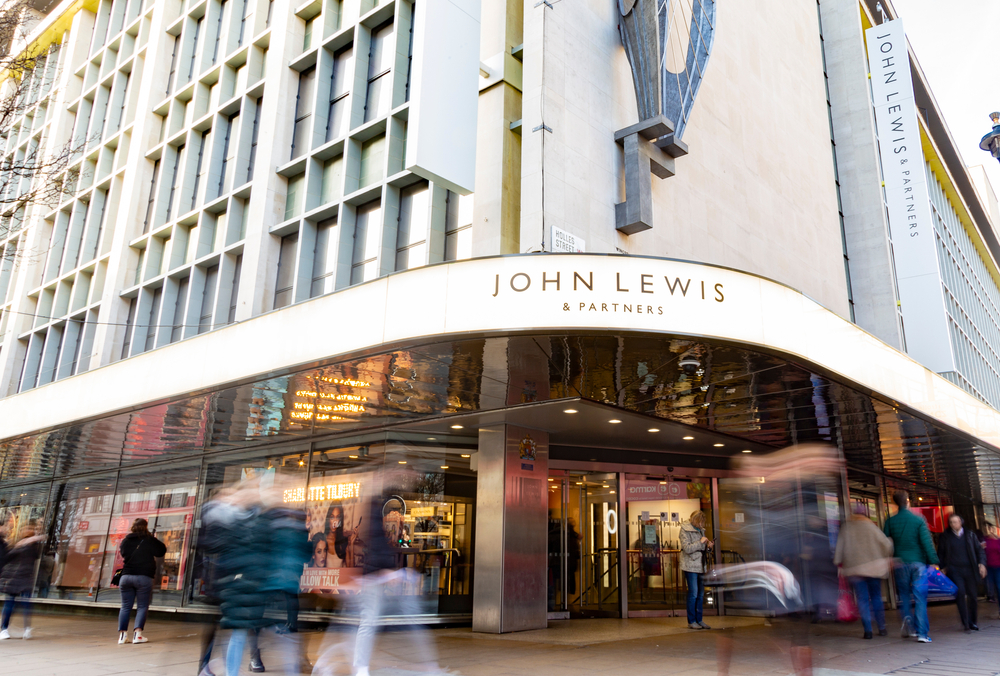Since the UK voted in favour, albeit with a slim 52 per cent majority, of leaving the EU in June 2016, Brexit has become a permanent fixture of media headlines – as well as creeping up in countless conversations with friends and family.
Now that the UK has officially out of the EU for just over a month now, Brexit still isn’t quite complete.
Retailers are asking themselves what this actually means. For now, it just means that the UK is not represented in the EU parliament. The UK is in an 11-month transition period, and in this time, it remains in the customs union and must still conform to EU rules.
During this transition period, a trade deal with the EU is on the to-do list, so retailers can figure out how to continue trading with the UK, and vice versa. The government said there would be no extension on this, and if no trade deal is reached by the end of 2020, the World Trade Organisation (WTO) rules would be implemented. This would result in tariffs on exports to the EU, and customs checks at the borders.

The dangers for British retailers have been well documented by the BRC. Last month the industry lobby group said that “without a pragmatic agreement, consumers face higher costs and reduced availability of goods”. The BRC also called for solutions on future compliance and regulatory checks that will apply once the transition period ends from January 2021.
“Almost 80 per cent of all the food that UK retailers import comes from the EU, making the EU negotiation particularly important for these essential goods,” the BRC stated.
“Most of this comes through Dover and Folkestone, the UK’s largest roll-on/roll-off ports, which handle almost 7000 lorries every day.”
Despite fears, Birmingham City University lecturer Dr Steve McCabe believes “nothing dramatic is expected” – due to the transition period. However, he said that should there be changes in such arrangements through the implementation of tariffs on food imported from the EU, there could be an increase in prices.
“Almost 80% of all the food that UK retailers import comes from the EU”
Currencies Direct chief market analyst Phil McHugh agreed. He said retailers who do not take steps to mitigate the currency risk “will add to their problems in a post-Brexit environment as trade talks are currently threatening profit margins through increased import costs”.
However, other products imported from outside the EU which are part of any future trade agreements, especially food from the US, may be cheaper, according to McCabe, although there are concerns that standards there are not as stringent as those required in the EU.
“There is a possibility that free trade negotiations between the UK and EU will result in failure which would mean that tariffs on a range of goods would come under World Trade Organisation rules,” McCabe said.
“This could potentially result in widespread alteration across a range of goods.
“In the forthcoming months everything will be uncertain. Brexit is far from ‘done’.”
One of the major issues the retail industry is likely to face following Brexit relates to staffing.
Recently-appointed Home Secretary Priti Patel made headlines recently when she unveiled the government’s new points-based immigration system.
The system – designed to curb what the government calls “low-skilled workers” from the EU coming to the UK after free movement ends on January 1, 2021 – means prospective employees will need to will have to gain at least 70 points to be eligible for a skilled work visa. Points are gained through efficiency in the English language, a job offer from a vetted UK employer, minimum salary requirements, among other things.
A points system existed previously, but it only pertained to non-EU citizens and the system of allocating points was slightly different.
Patel said “employers will need to adjust” to the system in the next 10 months, and that retailers need to “move away from reliance” on immigrant workers through “staff retention” and “wider investment in technology and automation”.

“Retail is one of the many sectors that relies disproportionately on international employees, the majority of whom are from the EU and who have previously been able to enter the UK without any visa or requirement for particular qualifications or measurable skills,” said Shara Pledger, an associate at Latitude Law.
“This isn’t to say this workforce isn’t skilled, just that the government doesn’t treat it as such.
“The government’s points-based immigration system is set to have a significant impact on the retail industry.
“When free movement ends and EU and non-EU workforce are treated in the same way, the criteria will have profound repercussions and has the potential to cause huge skills shortages within retail where roles have been widely filled by EU workers.
“What we expect to see, then, is a developing and widening gap between what the retail industry requires staff-wise, and the availability of people to fulfil these roles. This is likely to cause a real headache for retailers, in what is already a volatile industry facing a wide range of challenges.
“The sooner retail organisations can begin getting to grips with the system, the better.”
“Retailers can now expect a difficulty to trade with EU customers and increased delivery times”
Kevin Murray, managing director at digital commerce agency Greenlight, said: “Retailers can now expect a difficulty to trade with EU customers, increased delivery times, as well as a decrease in overall transactions.”
“Although these concerns cannot be fully resolved until a final decision is made, retailers must take action now to minimise the impact of Brexit.
“With the January 31 deadline behind us, UK brands must start looking towards a future separate from the EU.
“The UK’s post-Brexit future has delivered such uncertainty over recent years that many retailers have remained stagnant mainly due to apprehension over what is to come.”
Murray added that retailers must understand their customers and put their needs first to ensure their consumer retention rates don’t suffer while they adapt to an “uncertain and shifting retail environment”.
“Customers’ needs and expectations are at an all-time high, while brand loyalty is relatively low,” he said.
“Retailers need to continue to deliver outstanding customer experiences across the board to keep their customer base engaged and satisfied.”
He argued that retailers need to develop and evaluate their online channel during the “Brexit transition period” to “ensure stability”.
The fact that the ONS found that the amount of goods sold in the UK rose by 0.9 per cent in January, suggests there has been something of a “Boris bounce” after December’s General Election, especially after falling figures in the months leading up to Christmas.
Last year was characterised by the ongoing crisis of business restructures, stores closures and job cuts – all with Brexit as one of the main underlying reasons – so retailers were not so surprised to end 2019 with a total sales decline of 0.1 per cent – the first time this has happened since 1995.
Given the continuing headwinds of uncertainty, it might be hasty to assume that the barrage against the retail sector has come to an end. Consumers can be expected to remain cautious in their spending, and announcements made in the Budget this month could impact on the overall health of retailing and in terms of people’s spending power.
The UK has always been a country of trade, and although Brexit may present a slew of challenges, it will not change its fundamental status as a powerful commerce force in the world.
Click here to sign up to Retail Gazette‘s free daily email newsletter


















